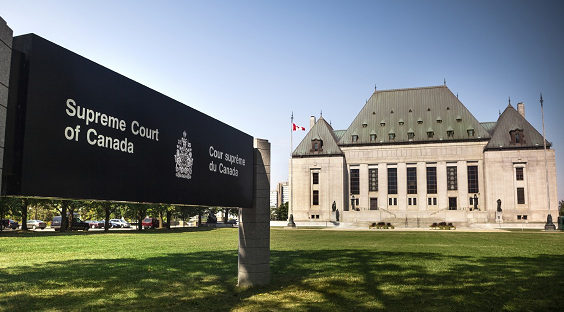
Canada’s Supreme Court has ruled against the airline industry in a case that will affect how passengers are compensated for travel disruptions.
The ruling comes after the airline industry sued the Canadian government for updates to its passenger protection regulations that went into effect in 2019.
The country’s top court on Friday dismissed the airline industry’s appeal, ruling that airlines can be required to reimburse passengers.
The new rules require airlines – both Canadian and international – to compensate passengers whose flights are disrupted, or whose luggage is damaged or lost. It applies to all passengers flying into, out of and within Canada.
Airlines argued that Canada has no right to impose rules on foreign carriers and that the compensations proposed do not match international rules on air travel.
At the heart of the legal dispute are Canada’s Air Passenger Protection Regulations, which mandate airlines compensate passengers if their flights are delayed or cancelled, with monetary amounts set out depending on the severity of the disruption.
In cases of a more than nine-hour delay, passengers are entitled up to C$1,000 ($738; £563) if the disruption is the airline’s fault.
The regulations also require airlines to, in some cases, provide food and accommodation for passengers, as well as compensate them for lost or damaged luggage.
If a flight is cancelled, the airlines are required to issue a refund or rebook a new seat either on their next available flight, or on a flight aboard another airline.
Passengers who have a dispute covered by the regulations can submit it to the Canadian Transportation Agency (CTA), who would then rule if they are entitled to compensation.
The airline industry – including Air Canada, Canadian carrier Porter Airlines, the International Air Transport Association and international airlines like British Airways – had sued the Canadian government over these rules but lost in federal court.
The fight ended up at the Supreme Court in March.
The airlines argue that the rules should be tossed out as Canada is already a signatory to an international treaty that sets out compensation rules for flights.
Canada argued their rules are designed to treat all passengers in a fair and consistent manner.
In a statement, the International Air Transport Association said it was disappointed by the ruling, saying the interests of passengers are best served through safe travel with minimal disruptions.
“While airlines play a critical role in this, the federal government needs to focus its efforts on improving the overall air travel system, especially in the parts of the value chain which are directly under its control,” it said.
Passenger rights activists, who filed for intervenor status in the case, say that international regulations set out a minimum for air travel compensations and do not stop individual countries from creating their own regulations.
On Friday, the Council of Canadians with Disabilities, the National Pensioners Federation, and the Public Interest Advocacy Centre in a joint statement called the decision “a major victory for Canadian consumers”.
Canada is not the only country with regulations for airline passenger compensation.
The European Union has had its own since 2005, as does the UK.
Earlier in 2024, the Biden administration in the US enacted new rules that require airlines to issue prompt refunds to passengers.
Gabor Lukacs, an airline passenger advocate in Canada who is also an intervenor in the Supreme Court case, says he is critical of Canada’s regulations because he believes they are not as strong as those of the UK or the EU.
But despite his criticism, Mr Lukacs in a statement on Friday said that he was “grateful that the court rejected the airlines’ attempt to close the door and nail it shut on passenger protection in Canada”.
Source: bbc.co.uk






Be the first to comment